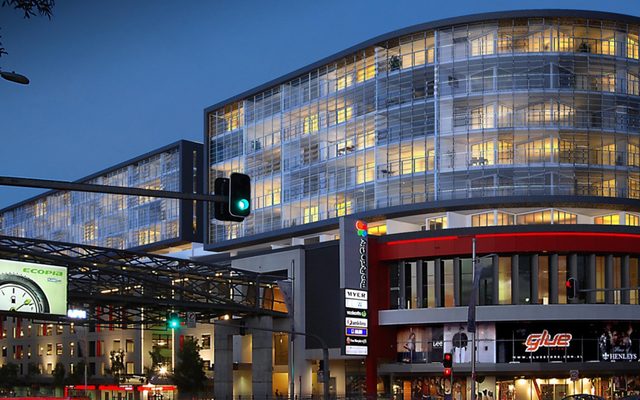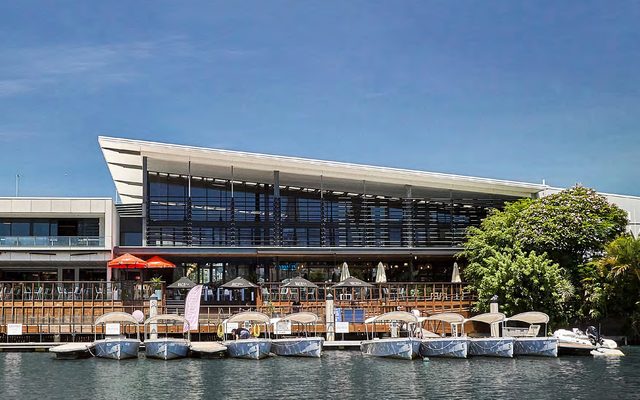This article is from the Australian Property Journal archive
MAJOR shopping centre landlords in Asia will provide rental relief packages and cashflow support for tenants impacted by the coronavirus with retail sales tipped to plummet by as much as 50%.
Singaporean heavy hitters CapitaLand Mall Trust and Mapletree Commercial Trust have put aside more than S$20 million combined to soften the economic blow felt by tenants.
CapitaLand Mall Trust committed rental relief and S$10 million in marketing assistance to help its mall tenants in Singapore, noting that the coronavirus – officially named Covid-19 – has impacted different malls and trade categories by varying degrees.
CapitaLand may offer flexible rental payments and a one-time rental rebate of up to half a month for eligible tenants. To ease cashflows for all its mall tenants, CapitaLand will also release a one-month security deposit to offset rental payments for the month of March. These initiatives are on top of the 15% property tax rebate granted by the Singaporean government under Budget 2020.
CapitaLand Mall Trust chief executive, Tony Tan said the relief package will benefit tenants operating more than 3,500 stores in CapitaLand’s retail network, including the over 3,000 stores in 15 malls owned by CMT.
“CMT cannot achieve sustainable distributions without embracing and considering the needs of our retailers. We want our tenants and shoppers to know we are in this for the long haul and that we will journey with them during this difficult period.
“As Singapore’s largest retail REIT, it is incumbent on CMT to take the lead and proactively work alongside our tenants, who are our closest business partners in an increasingly collaborative retail environment. By weathering the challenges together, we can build greater resilience for our retail ecosystem that underpins the long-term growth of our portfolio,” Tan said.
CMT owns Tampines Mall, Junction 8, Funan, IMM Building, Plaza Singapura, Bugis Junction, JCube, Raffles City Singapore (40.0% interest), Lot One Shoppers’ Mall, 90 out of 91 strata lots in Bukit Panjang Plaza, The Atrium@Orchard, Clarke Quay, Bugis+, Bedok Mall and Westgate. It also has an interest in the CapitaLand Retail China Trust.
Another SGX-listed company, Mapletree Commercial Trust also announced an assistance package of S$11 million. Most of the amount will go towards direct benefits in the form of calibrated rental rebates to its tenants at VivoCity, and rental rebates of up to half a month may be granted on a selected basis.
Mapletree Commercial Trust Management CEO Sharon Lim said the Covid-19 outbreak has emerged swiftly and unexpectedly.
“Although the situation is still evolving, we recognise the need to move quickly in providing immediate and tangible reliefs for targeted tenants.
“On top of that, we are expanding the scope to also cover retail partners who are located in MCT’s other properties that do not qualify for the property tax rebates. We recognise that the situation warrants additional support and hence our commitment is four times the amount of property tax rebates which we will be receiving from the government,” she added.
As well as VivoCity, MCT’s portfolio comprises Mapletree Business City, PSA Building, Mapletree Anson and MLHF, which have a combined total net lettable area of 5.0 million sq ft with a total value of S$8.9 billion.
Meanwhile, Hong Kong’s Sunlight Real Estate Investment Trust’s CEO Keith Wu Shiu-kee has warned the retail sales in the Special Administrative Region could plunge by up to 50% as the number of Chinese visitors decline dramatically.
Cushman & Wakefield’s Hong Kong head of research Reed Hatcher said the virus outbreak has dealt a second blow to Hong Kong’s property market, already weakened by the protests last year. According Cushman & Wakefield, visitors from mainland China in 2002 totalled 6.8 million and in 2019, despite a sharp drop due to the social unrest, that figure had jumped to 43.8 million, representing nearly 80% of all visitors to the city. At the same time, as incomes in mainland China have risen so has spending in Hong Kong. Average per capita spending by mainland tourists to Hong Kong has climbed from HK$5,639 in 2002 to HK$7,029 in 2018.
Hatcher said in the near term, the retail sector will be hardest hit.
Already severely impacted by the protests in recent months, retail sales in Q4 2019 plunged 22.4% y-o-y, the steepest drop on record. At the same time, average rents in the city’s leading retail hub, Causeway Bay, fell by 14.9% in the second half of 2019 and were already forecast to come under continued pressure through the first half of 2020.
“The current situation is likely to exacerbate that, leading to potential closures of some shops and F&B establishments, especially in core areas. Meanwhile, some major landlords of shopping malls in Hong Kong have temporarily lowered base rents by as much as 50-60% to support tenants struggling from the impacts of the virus,” Hatcher said.
Similarly, Japan’s retail sector is also bracing for a hit as mainland China visitors were the biggest spenders among all tourist groups in 2019.
Cushman & Wakefield head of research in Japan, Dr Hideaki Suzuki said Chinese visitors spent 1.8 trillion Yen or accounted for 37% of total tourism spend in 2019, averaging well over 100,000 Yen per person.
“A fall in Chinese tourist numbers will significantly impact the retail sector, especially on department stores and prime retail streets. The ban on group tours from China has hit retailers hard as they aimed at a recovery over the Chinese New Year sales season. The consumption tax hike has already helped push retail sales down from the prior year and so, counting on the inbound spending which reached a record high last year, the tour group ban has come as a great disappointment to the sector.
“Some department stores have already revealed a decline in sales over the Chinese New Year season.” Dr Suzuki said.
Meanwhile in Australia, it is exacerbating the challenges faced by the retail sector which has been hit by low consumer confidence and high household debt as Aussie try to pay off their mortgages.
One of the country’s largest landlords Vicinity Centres recently said it has witnessed a material decline in foot traffic at its centres, which it expects will impact retail sales.
As a result, CEO Grant Kelley is forecasting modest reductions in percentage rent, ancillary income and hotel bookings.
According to Vicinity, between July and December 2019 period, annual portfolio foot traffic grew by 0.8%, however following news of the outbreak it has declined by 5.7% between January 24-31 and 8.1% between February 1-16. Vicinity subsequently revised its FY20 FFO guidance per security down to 17.2 to 17.4 cents from 17.6 to 17.8 cents.




